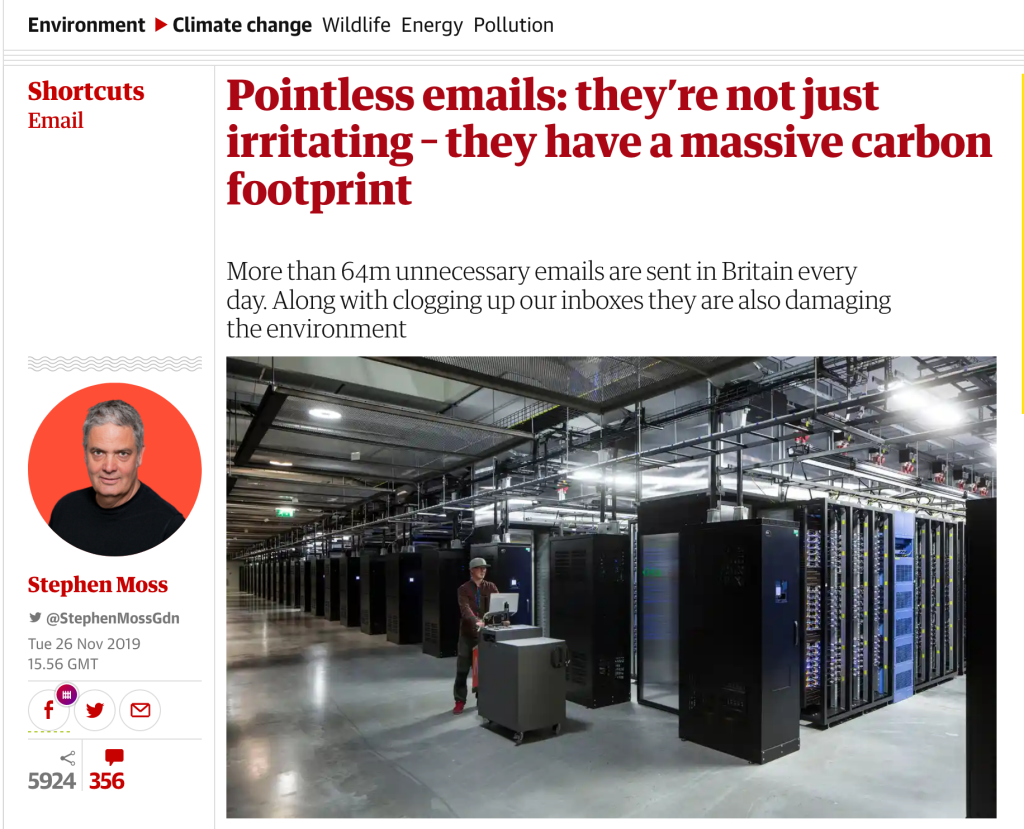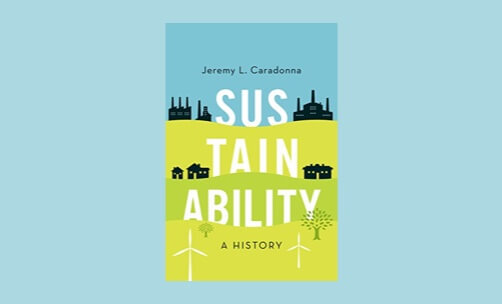|
Coming together for a positive future
|
Well, we’ve reached the end of 2020, and what a year it has been! While this year hasn’t been anything like what any of us might have imagined, I try to look at the positives. A situation like this pandemic can tear us apart, or bring us together. In the field of digital sustainability, I feel that more of us are becoming focused on collaborating for a better future, and I’m really happy to be part of this community, seeing the work so many are doing to bring about change.
When we launched this newsletter, I never imagined it would grow as it has. Attracting around 100 new readers every month (welcome new subscribers!), I love the synchronicity that we’ve just surpassed 1,500 readers as we share our 15th issue.
And I’m very excited to finally tell you all that for the past year I have been writing a book on Sustainable Web Design, which is to be released in the new year. More on that next month!
Until then, I wish you Happy Holidays!
– Tom Greenwood
|
|
|
Top picks from the green web
|

Should we worry about sending thank you emails?
|
This is something that has come up a few times, and a few members of our team did at one point say they would stop sending one word emails, such as ‘thanks,’ in order to reduce their impact. There is even a chrome extension, Carbon Capper, that you can download, which identifies potentially pointless emails. However, changing these habits is easier said than done, and as one of our team members says “it just feels rude to not thank someone!”
In this article, Chris Adams takes on the original Guardian article, saying that this shaming of individual actions isn’t helpful, and what we should instead focus on is holding the big companies to account and looking at where we can make real change. I totally agree with Chris that media like this pushes the problem onto users of the web, when in fact the biggest issues happen at a corporate level, from unwanted email newsletters (hopefully you do want this one!) to the use of tech in ways that enable destruction of the planet. Shaming people for being polite over email is not the solution.
|
|

Should we ditch 4K video and new tech to fight climate change?
|
The BBC reports on new research from the UK’s Royal Society, saying that we should ditch 4K – which causes about eight times more emissions than SD – when streaming content online. The BBC article also recommends keeping our phones for longer, and/or buying second hand devices, to reduce the impact of digital on the climate. They are no doubt right that these things can help, but it’s yet another example of the media putting the responsibility on the general public in order to grab headlines, rather than looking to the industry itself.
As Chris Adams points out in the article above regarding emails, we need to be looking at the bigger picture. That means focusing the attention on the big impact that tech companies have, and looking at the wider context of how tech changes society too.
The Royal Society’s own commentary in fact does have its focus on the industry and what government can do to enable greater responsibility within the tech sector. It has the overriding message that digital is in fact key to unlocking the transition to net zero. While we can make small changes to our daily habits that will make a difference, we need to remain focused on the long-term goals, and harness the power of technology for good, while taking steps to ensure the sustainable development of the tech we create.
|
|
|
The sustainability of content management systems
|
This year’s Web Almanac is the first to feature a section on the environmental impact of the web. The section written by Alex Denning, co-author of the excellent Master WP newsletter) analyses data from HTTP Archive for websites powered by content management systems. They found a huge disparity in page weight, with the most efficient percentile of pages being approximately ten times more efficient than the least efficient percentile.
It states that although page weight is highly influenced by aspects unique to each individual website, there are also factors that apply at a CMS platform level, both in the use of third party resources and in whether or not the platform supports more efficient formats for assets such as WebP for images. I was shocked to see that only 1% of CMS websites are using WebP images!
|
|
|
|
|
"One must care about a world one will not see"
|
Bertrand Russell
|
|

Sustainability: A History by Jeremy L. Caradonna
|
Sustainability: A History takes you on a journey from known origins of the term in the 17th century, quickly moving to the 1900s and the impact of the industrial revolution, before ultimately underlining its prevalence in our lives today and looking towards the years and decades ahead.
Using time as the thread, the author looks at sustainability through the lens of society, economics and the environment in broad and concise terms, outlining important aspects and highlighting the opinions of key figures. Helpfully, rather than diving too deeply the author name-drops plenty of people and references, leaving any further exploration to you.
Among the broader themes there are opinionated leanings towards things like reduced/zero growth and the action governments should be taking, but these are backed up with reason and are welcome sparks for conversation.
If you’re curious about sustainability this book will bring many of the modern day issues and talking points to the fore, and will probably fill in some gaps along the way.
– Dan Westmancoat, Senior WordPress Developer at Wholegrain Digital
|
|
|
|
|
Quick links from our team & friends
|
-
“The Cloud Isn’t Inherently More Sustainable” – Mightybytes’ Tim Frick talked to Forbes about our increasing reliance on online communications and how we can limit the environmental impact.
-
Thoughtbot’s article on creating eco-friendly websites comes at it from the perspective that instead of thinking about making green sites, we should start where we are, by thinking in terms of reducing harm.
-
TEDxClimateActionTech took place On Wednesday 16th December, and brought together those passionate about sustainability in tech, to discuss actionable climate solutions, for, and from, the industry. If you missed the event, you can now catch up on the talks online.
-
Some of you may have noticed the Google doodle of a falling leaf at the end of November. This was to mark 13 years of Google being carbon neutral, and highlight what they are doing to become carbon free by 2030.
|
|
|